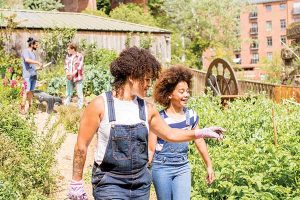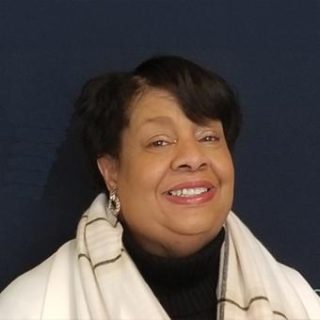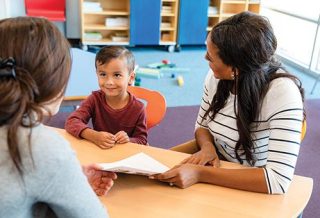VOICES
Bilingual teacher workforce starts with English learner students
By Belinda Bustos Flores and Lorena Claeys
Categories: Career pathways, English learners, Reaching all studentsApril 2019
Vol. 40 No. 2
Read the remaining content with membership access. Join or log in below to continue.
Sed ut perspiciatis unde omnis iste natus error sit voluptatem accusantium doloremque laudantium, totam rem aperiam, eaque ipsa quae ab illo inventore veritatis et quasi architecto beatae vitae dicta sunt explicabo. Nemo enim ipsam voluptatem quia voluptas sit aspernatur aut odit aut fugit, sed quia consequuntur magni dolores eos qui ratione voluptatem sequi nesciunt. Neque porro quisquam est, qui dolorem ipsum quia dolor sit amet, consectetur, adipisci velit, sed quia non numquam eius modi tempora incidunt ut labore et dolore magnam aliquam quaerat voluptatem.
OUR STORIES, OUR STRENGTHS
Belinda Bustos Flores
I was raised in a bilingual-bicultural home in Texas, but I was more Spanish-dominant as a young child. My childhood was filled with rich cultural and linguistic experiences at home, school, and the community. I still remember all the cuentos (stories) my Mamá Julia (grandmother) shared with me, how she helped me read in Spanish, and later how those stories furthered my understanding of English stories at school.
I have always been proud of my Mexican-American history and heritage, and these experiences shaped who I am today, my commitment to bilingualism, and my view of the world. My bilingual and bicultural skills have helped me become a successful student, teacher, counselor, university professor and researcher, and now an associate dean.
Lorena Claeys
I grew up speaking only Spanish across the Rio Grande in a border town in Mexico. In high school, I learned to speak English with limited support from an English as a Second Language (ESL) class.
In this sink-or-swim approach, I sometimes struggled and felt invisible because I sat quietly and was excluded or just went unnoticed since teachers did not possess the knowledge and skills to work with English/bilingual learners. But because I had strong academic and language skills in Spanish, I succeeded in school and went to college. I became a bilingual/ESL teacher because I wanted to work with children like myself, and I later used these skills to become a bilingual/dual language coordinator and a university administrator and researcher.
ACTIVITIES TO DEVELOP AN ASSET-FOCUSED PERSPECTIVE

Community garden. Take students to a community or family garden to learn about the growing process, the environment, and how people know when to plant and harvest. To promote responsible citizenship, students can create a school garden or assist in the community or family garden and share their produce with others (e.g. food bank).
Business/industry. Have students observe the work at community businesses like bakeries, auto mechanic shops, flower shops, tailors, or dressmaking shops. Ask them to reflect on how these activities teach literacy, mathematical, and scientific concepts.
Family interviews. Have students explore their cultural identity, traditions, cultural practices, and language through interviews with parents, grandparents, and other family members. Have students trace their journey from their home country on a map to learn about geography.
Volunteering. Help learners become active in the community by volunteering for civic or religious events, collecting canned goods for the food bank, reading at the library’s reading hour, visiting senior centers, or tutoring after school.
Journaling/blogging/multimedia. Activities in which learners write and reflect on their community experiences can assist them in developing critical literacy skills. These experiences make learners think about their role within the community and how they are making a difference in people’s lives.
Future bilingual teachers clubs. Provide resources and support to establish a Bilingual Education Student Organization (BESO) chapter at your school. Connect with your local university’s BESO members and invite them to participate in your chapter activities.
References
Flores, B.B. (2017). California’s mini-corps commentary. In C.D. Gist (Ed.), Portraits of anti-racist alternative routes to teaching in the U.S. New York, NY: Peter Lang Publishers.
Flores, B.B., Claeys, L., & Gist, C. (2018). Culturally efficacious teacher preparation and pedagogies for social justice. Lanham, MD: Lexington Books.
Flores, B.B., Claeys, L., & Wallis, D. (2006). Academy for Teacher Excellence: Extending the dialogue in university and community college partnerships. Journal of Learning Communities Research, 1(1), 29-51.
Flores, B.B., Clark, E.R., Claeys, L., & Villarreal, A. (2007). Academy for Teacher Excellence: Recruiting, preparing, and retaining Latino teachers through learning communities. Teacher Education Quarterly, 34(4), 53-69.
Gist, C.D., Bianco, M., & Lynn, M. (2019). Examining grow your own programs across the teacher development continuum: Mining research on teachers of color and nontraditional educator pipelines. Journal of Teacher Education, 70(1), 13-25.
González, N., Moll, L.C., & Amanti, C. (Eds.) (2006). Funds of knowledge: Theorizing practices in households, communities, and classrooms. New York, NY: Routledge.
Lucas, T., Villegas, A.M., & Martin, A.D. (2015). Teachers’ beliefs about English language learners. In H. Fives & G.M. Gill (Eds.), International handbook of research on teachers’ beliefs (pp. 453-474). New York, NY: Routledge.
Quezada, R. & Ruiz, E. (2017). Former children of migrant farmworkers: A “secret” pipeline for growing your own bilingual and bicultural teachers in California. In C.D. Gist (Ed.), Portraits of anti-racist alternative routes to teaching in the U.S. New York, NY: Peter Lang Publishers.
Valenzuela, A. (Ed.). (2016). Growing critically conscious teachers: A social justice curriculum for educators of Latino/a youth. New York, NY: Teachers College Press.
Yosso, T. (2005). Whose culture has capital? A critical race theory discussion of community cultural wealth. Race, Ethnicity and Education, 8(1), 69-91.
Categories: Career pathways, English learners, Reaching all students
Recent Issues
NAVIGATING NEW ROLES
April 2025
Read the remaining content with membership access. Join or log in below to...
LEARNING DESIGNS
February 2025
Read the remaining content with membership access. Join or log in below to...
BUILDING BRIDGES
December 2024
Read the remaining content with membership access. Join or log in below to...
CURRICULUM-BASED PROFESSIONAL LEARNING
October 2024
Read the remaining content with membership access. Join or log in below to...











